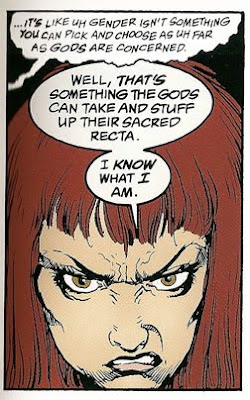Over the last few days, I’ve watched the endings of Ashes to Ashes, Lost, and also (by a quirk of fate) the ‘Journey’s End’ episode of Doctor Who (end of series 4), which is where my eldest son and I have got to. I think that all three TV episodes ended well. (In fact, I am now open to seeing the whole of Lost again at some point (in a few years time), when I was quite sceptical of it.) So the question of endings is on my mind; most especially, the question of good endings. What is the essence of a good ending?
I would say there are two elements that apply to any story, and then something that I look for personally to gain the most satisfaction from an ending.
The first and possibly most essential element of a story ending is that it is consistent with the characters. The actions taken – and the consequences of those actions – must flow from authentic behaviour and not be mere contrivances to advance the plot. Characters must be given their own integrity, otherwise the authorial voice is overwhelming and we are no longer in story territory, but in sermon territory.
The second element is that the plot should be coherent and intellectually satisfying on its own terms, that is, the ‘universe’ being explored should be consistent and have its own stable framework. (Where the framework is the same as our lived existence, you have realist fiction. Where the framework is altered is a specific way, you have what is called fantasy or science fiction.) Essential questions need to be answered!
Those two elements I think are essential for anything to qualify as ‘good’, ie to have a certain degree of quality. For me, personally, there is a third element that I look for which ‘knocks the ball out of the park’ when it is achieved successfully, and this is when the creation succeeds in showing that death is not terminal for meaning. What I mean by this is that there is a framework of value which is articulated through the story which is shown to be vindicated beyond the death of the lead character(s). Of course, this is a Christian perspective. It is perfectly possible to have a high quality story that is not ‘orthodox’ in this sense (Un Couer en Hiver is the best example I can think of).
Where the third element is in place, then an element of grace enters in to the story, and it makes letting go much easier – for the characters themselves, and also for those watching or reading. There IS such a thing as a good death.
Things I particularly enjoyed from those three TV episodes:
from Ashes
– the destroyed Quattro, and then Gene looking at a Mercedes brochure;
– the Railway Arms, and all that was symbolised by that (and by the parallel symbolism elsewhere);
– the realistically sad note about Molly.
from Dr Who
– the final resolution of the Rose character arc;
– everything about Donna (sort of tragic).
from Lost
– Juliet coming back in the way I predicted, and the ‘Go Dutch’ resolution for them;
– Locke forgiving Ben, and Ben staying outside;
– Jack’s redemption.
For me, the most effective treatment of these themes – and the best ending – isn’t found in television, or in novels, but in comics, specifically the Sandman sequence, which is all about the nature of a good story (and therefore, by definition, all about a good ending). My three criteria are all fulfilled in abundance here, but most of all, there is a richness of allusion and metaphor and incidental characterisation that makes the re-reading of the stories an immense pleasure.
In keeping with the nature of the medium – herewith one of the many endings in the Sandman sequence (you’ll have to read it to really understand it!)











